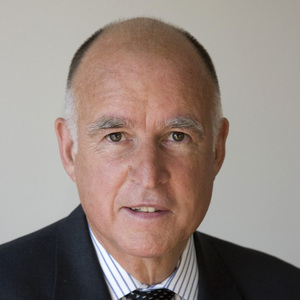California Gov. Jerry Brown signs major climate bills into law

September 8, 2016
BY Ron Kotrba
Ten years after California adopted the toughest greenhouse gas emission reduction goals in the nation, Gov. Jerry Brown signed two major climate bills into law Sept. 8—SB 32 and AB 197. The new laws require the state to cut emissions at least 40 percent below 1990 levels by 2030 and invest in communities hardest hit by climate change.
“Climate change is real, and knowing that, California is taking action,” Brown said. “SB 32 and AB 197 are far-reaching moves that continue California on its path of vast innovation and environmental resilience.”
California is on track to meet or exceed the current target of reducing greenhouse gas emissions to 1990 levels by 2020, as established in the California Global Warming Solutions Act of 2006 (AB 32). The new 2030 requirement in SB 32 will help make it possible to reach the ultimate goal of reducing emissions 80 percent under 1990 levels by 2050, the governor’s office stated.
State Sen. Fran Pavley, who introduced SB 32, said, “SB 32 sends an unmistakable message that California is resolute in its commitment to remain on that healthy and prosperous course.”
AB 197, introduced by State Assemblymember Eduardo Garcia, establishes a legislative committee on climate change policies to help continue to ensure the state’s actions to reduce greenhouse gas emissions are conducted with transparency and accountability.
“In order for California to remain an economic and environmental leader the state will need to also be a trailblazer on issues related to equity,” Garcia said. “Placing the health and economic impacts of climate policy on vulnerable populations second will stunt the state’s prosperity.”
Shelby Neal, the director of state governmental affairs for the National Biodiesel Board, said, “California continues to demonstrate its leadership on climate issues with Gov. Brown’s signing of SB 32 today. The bill will ensure that the future of low carbon fuels in California remains bright. Biodiesel and renewable diesel are leading credit generators under the low carbon fuel standard (LCFS) and we expect their presence to continue growing with the expansion of this landmark policy. The Air Resources Board has done a tremendous job implementing the LCFS, and air quality for all Californians is better as a result.”
Advertisement
Advertisement
Advertisement
Advertisement
Related Stories
The U.S EPA on July 17 released data showing more than 1.9 billion RINs were generated under the RFS during June, down 11% when compared to the same month of last year. Total RIN generation for the first half of 2025 reached 11.17 billion.
The U.S. EPA on July 17 published updated small refinery exemption (SRE) data, reporting that six new SRE petitions have been filed under the RFS during the past month. A total of 195 SRE petitions are now pending.
The USDA has announced it will delay opening the first quarterly grant application window for FY 2026 REAP funding. The agency cited both an application backlog and the need to disincentivize solar projects as reasons for the delay.
CoBank’s latest quarterly research report, released July 10, highlights current uncertainty around the implementation of three biofuel policies, RFS RVOs, small refinery exemptions (SREs) and the 45Z clean fuels production tax credit.
The U.S. EPA on July 8 hosted virtual public hearing to gather input on the agency’s recently released proposed rule to set 2026 and 2027 RFS RVOs. Members of the biofuel industry were among those to offer testimony during the event.
Upcoming Events










